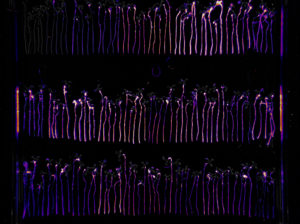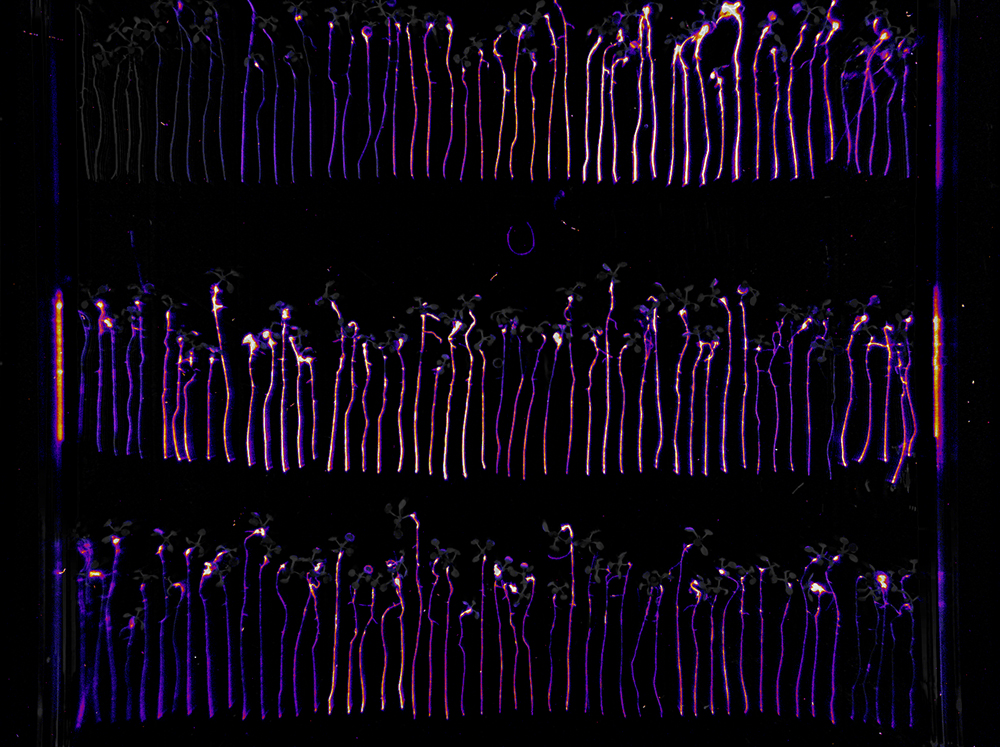
A bioluminescent assay helped researchers visually quantify the colonization ability of P. simiae mutant strains. (Credit: Benjamin Cole)
A plant’s health and development is influenced by the complex community of microbes that surrounds it. Researchers at the Joint Genome Institute (JGI) and their collaborators at the Howard Hughes Medical Institute at the University of North Carolina have identified some 350 genes of the bacterium Pseudomonas simiae that positively or negatively impact how effectively this beneficial microbe colonizes plant roots. Cataloging these genes—and understanding the cellular functions that they’re involved in—is the first step toward developing targeted approaches to improving plant health and growth for a number of applications. The results of the study were published in PLOS Biology. Read more on the JGI website..




